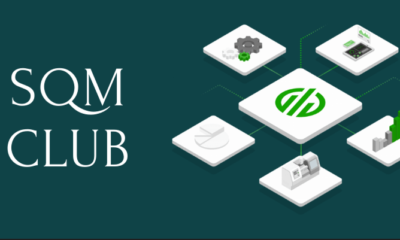An extensibility platform allows its users to extend its functionality with a simple code tweak. This makes it easier for developers to build applications on top of the platform and more accessible to a broader set of potential users. The ability to extend the functionality of a platform is one of the most critical capabilities in terms of business impact.
A platform is a type of software application or service that offers a range of features to its user base. As a business owner or manager, you may consider building your own custom-made software applications for your business. But the cost and effort required can be daunting. An alternative would be to invest in a pre-built, ready-to-go platform.
Platforms are generally very robust and feature-packed, but can cost thousands of dollars per month. As a result, most platforms only have a handful of pre-built solutions that the average business can use. And many of those solutions are designed with the specific end-user in mind.
Platforms used by businesses today include Amazon Web Services, Google Apps, Salesforce, Dropbox, Salesforce.com, Facebook, Google Docs and more. But how can the extensibility of a platform benefit a business? Here are seven benefits that come from customizing a cloud platform in order to improve efficiencies and save money for your company:
How can the extensibility of a platform benefit a business?
Most businesses that are established now use the extensible platforms to market their products and services. These platforms can be used to advertise their products to customers. They also provide ways for customers to get connected to the company. Some of these websites and social networking sites have become very popular.
The extensibility of a platform is the ability to extend it. The extensibility of a platform can make a business more efficient. Businesses that are able to work on different types of platforms can do things like streamline operations and reduce costs. This is why companies that use extensible platforms are considered to be more competitive. By using an extensible platform, they can add functionality to the platform and change it as needed.
In order for the extensibility of a platform to be useful, it must have a certain degree of openness. It needs to be able to accept new ideas, changes, and innovations. There is nothing wrong with that because a platform should be able to adapt to the needs of its users. A platform that does not accept new ideas will eventually fail.
‘How can the extensibility of a platform benefit a business accenture?’
Businesses often use software that was created by other businesses to improve their operations. The extensibility of a platform means that it can be easily modified by other companies or even other individuals. That’s what makes a platform so powerful. Companies don’t have to invest a lot of money to create their own products or services. Instead, they can purchase software that was developed by other companies.
If you have an office, you can easily expand it as long as you have the right kind of material. It’s possible that you might be building your own business one day and you will need to add more space to your office. You can use the extensibility of a platform to help you achieve that. You can build a wall to create more space. In addition, you can also buy more chairs, tables, computers, and other accessories to expand your office.
How can the extensibility of a platform benefit a business answer Brainly?
There are lots of ways to use a platform. It can be used as a marketing tool. A platform gives you a new way to attract attention. The first thing you must remember about platforms is that they are very useful to build an audience and a fan base. You can create an audience for your product or service. You can use your platform to create a following for yourself or to promote your business. You can use the internet to market your products or services.
Now, you should know that it’s hard to make money online. Building an audience takes a lot of work. You must know that you are willing to put in the time and effort to build an audience. To do this, you must be creative. You must write articles and blogs that people will like. Once you have a following, you must interact with your audience by posting interesting, helpful articles. Make sure that you interact with people in the comments section.
You must reply to comments and answer questions. You should post videos to your blog. You should use social media. You should use your website to market your products or services. Now, what should you post on your blog? You should post pictures of your products and your company. You can also talk about your products and services. You can give tips and information. You should share pictures of your family.
‘How can the extensibility of a platform benefit a business by quickly and easily adding features as the platform grows?’
Platform extensibility is a feature that enables software developers to build add-on modules to an application. These modules can be used to add additional functionality and support to an application. There are different ways to add modules to a platform. One of these ways is called plugin development. Another way to add modules is through dynamic languages, which enable a developer to create a custom extension using a programming language instead of compiling a program into the desired application.
As the platform grows, you can add features as well. For example, if you have a simple shopping cart, you can easily add a cart number. But, if you are doing more complicated things, you may need more software to do that. One of the problems with a simple shopping cart is that you need to have a lot of inventory. If you’re going to do something more complicated than that, you’ll have to have a lot of inventory. As the platform grows, you can add features to make the platform easier to use. For example, if you have a cart, you might want to have more than one cart.
How can the extensibility of a platform benefit a business by having clear requirements that will not change throughout the platform’s lifespan?
A platform has a lifespan. When the platform is launched, it is expected that it will be used for a certain time. After that, the users of the platform may change. The changes may be minor or major. For example, the platform may change its color, or its design, etc. As soon as a change happens, the new version must be tested so that it doesn’t affect the users’ use of the platform.
A platform with clear requirements and specifications will be easy to use for the customers. Also, it will be easy for the business owners to implement their ideas into the platform. In fact, if they aren’t able to meet the requirements, then they can easily replace them. A platform that has clear requirements will increase their ability to provide customer satisfaction and will ensure that their customers will be happy.
Conclusion!
In conclusion, you can’t beat an open platform that’s designed for flexibility and interoperability. The more extensible a platform is, the more flexible it is for developers and the more interoperable it is with other technologies. This means more opportunities for new services and apps to be built on top of it. More than that, the open source nature of an operating system gives us all the power to control what we use. If you’re looking for a platform that’s fully extensible, here are some of the most popular platforms that are both open and extensible: Linux, Windows, Apache, MySQL, PHP, Java, Ruby on Rails, and Python.

 Business2 years ago
Business2 years ago
 Tips & Tricks2 years ago
Tips & Tricks2 years ago
 Business2 years ago
Business2 years ago
 Law2 years ago
Law2 years ago
 Business2 years ago
Business2 years ago
 Technology2 years ago
Technology2 years ago
 Game1 year ago
Game1 year ago
 Politics2 years ago
Politics2 years ago







